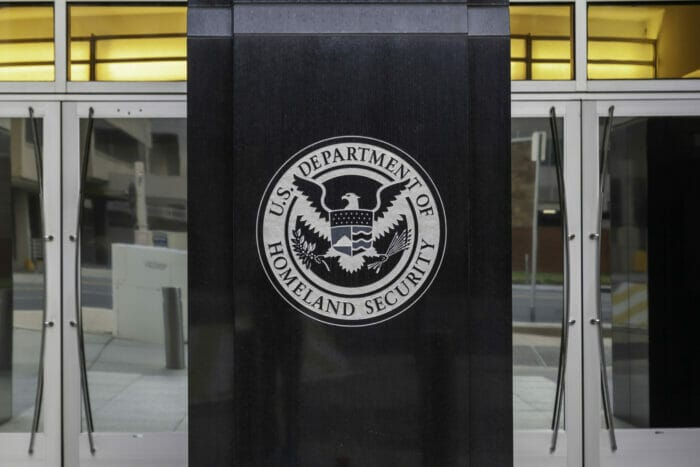
The Department of Homeland Security (DHS) on Thursday released a proposed rule that will return the agency to its long-standing interpretation of a policy used to decide whether immigrants who have relied on certain public benefits can receive U.S. visas or green cards.
The proposed rule centers on a provision in U.S. immigration law that prevents people from receiving green cards and certain visas if they are found to be a “public charge:” a noncitizen who is or is likely to become “primarily dependent on the government for subsistence” through either the use of cash assistance benefits or hospitalization for long-term care at government expense.
The DHS and Department of State (DOS) applied the same guidance on making public charge decisions for decades, limiting public charge findings to cases in which cash assistance for income maintenance such as Temporary Assistance for Needy Families (TANF, sometimes generally referred to as welfare) was received by the applicant, or long-term care provided for the government, often for elderly people. The newly proposed rule mirrors this long-standing guidance.
However, a 2019 public charge rule proposed by the Trump administration made a dramatic departure from this long-standing definition of public charge, instead expanding the definition to include a much wider range of common government benefits, such as Supplemental Nutrition Assistance Program (SNAP), housing and rental assistance, and non-emergency Medicaid benefits. An applicant under the 2019 rule who received one or more of any of the prohibited benefits for more than 12 months in aggregate within any 36-month period would be denied. Receipt of two benefits in one month counted as two months.
The 2019 public charge rule was widely criticized as a “wealth test,” and several states, along with immigrant and civil rights advocates launched multiple federal lawsuits to prevent the rule from taking effect on the basis that it discriminated against people of color, elderly people, people with disabilities, and those living in poverty.
The Biden administration formally withdrew the 2019 public charge regulation in March 2021,
and the Department of Justice indicated it would no longer defend the 2019 rule in the courts. Since the repeal of the 2019 rule, DHS and DOS have both reverted to using the 1999 Guidance on Public Charge.
The new rule proposes to define the term “likely at any time to become a public charge,” as well as specify the types of public benefits that would be considered in a public charge decision. DHS also plans to establish guidelines for immigration officers when considering an applicant’s current or past use of public benefits.
DHS believes that the proposed rule will create “a more faithful interpretation” of the concept of a person likely to become a public charge, while also reducing burdens on applicants, increasing ease and efficiency for agents processing the paperwork, and avoiding the “chilling effect” the 2019 rule had on access to benefits by people who were entitled to and needed them.
The rule will be open to comment by the public for 60 days following its publication in the Federal Register, expected to occur in the coming days.